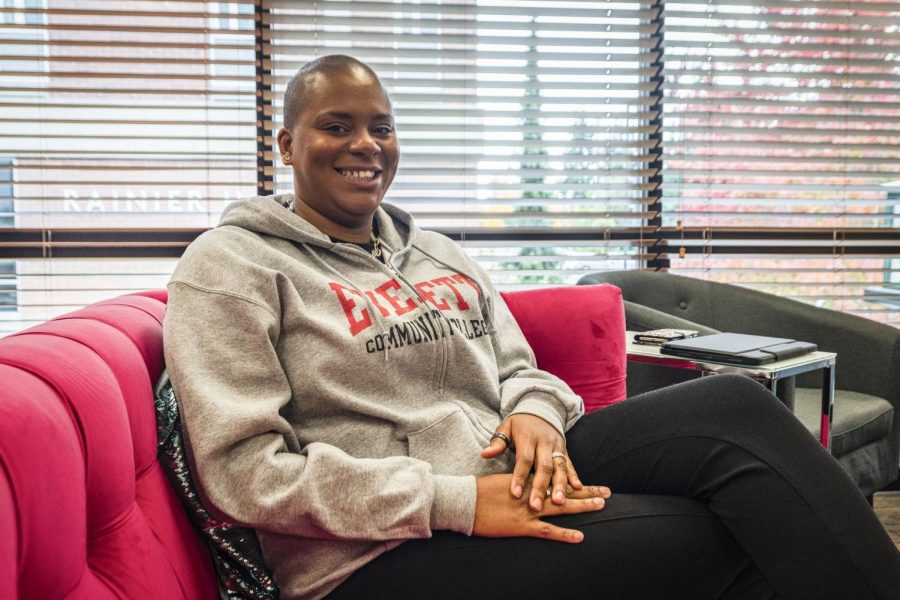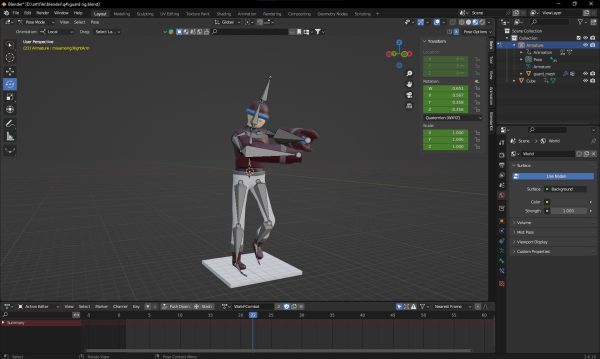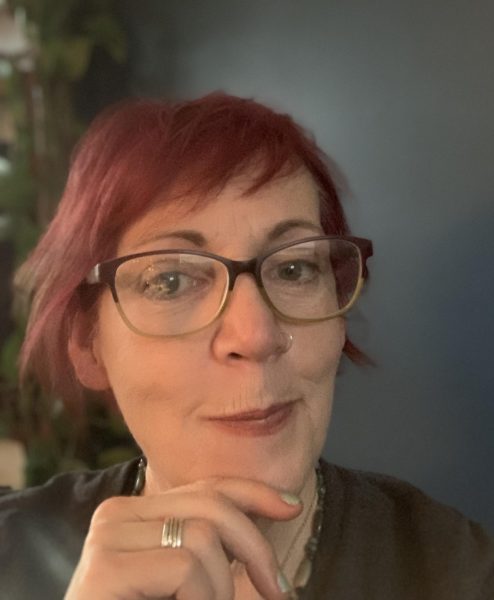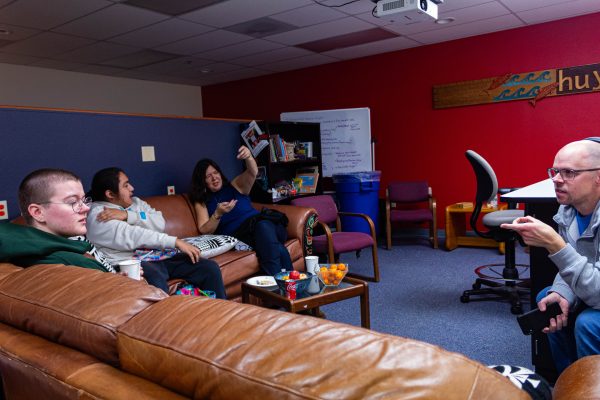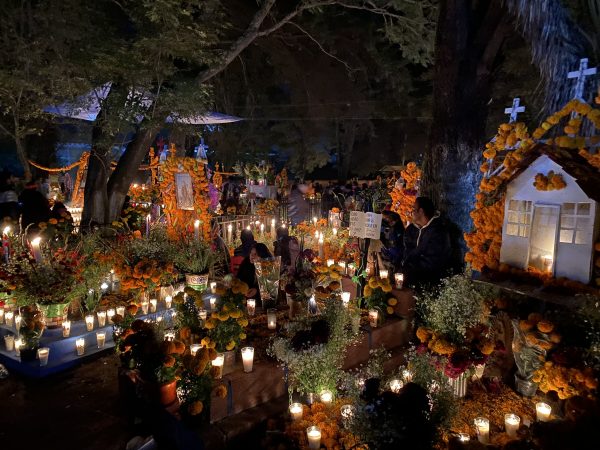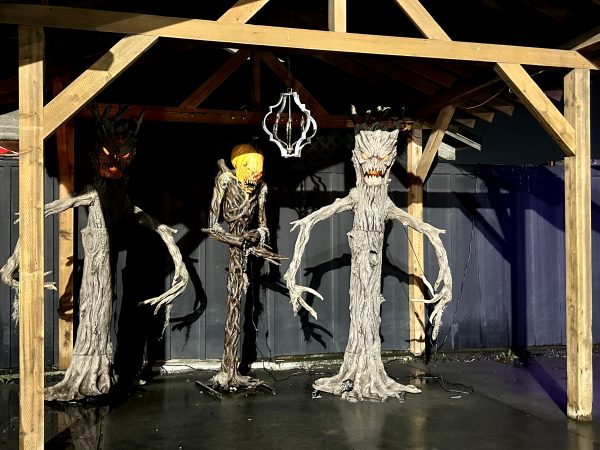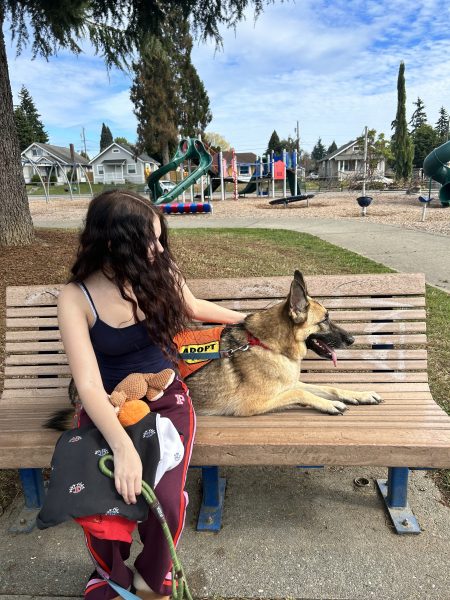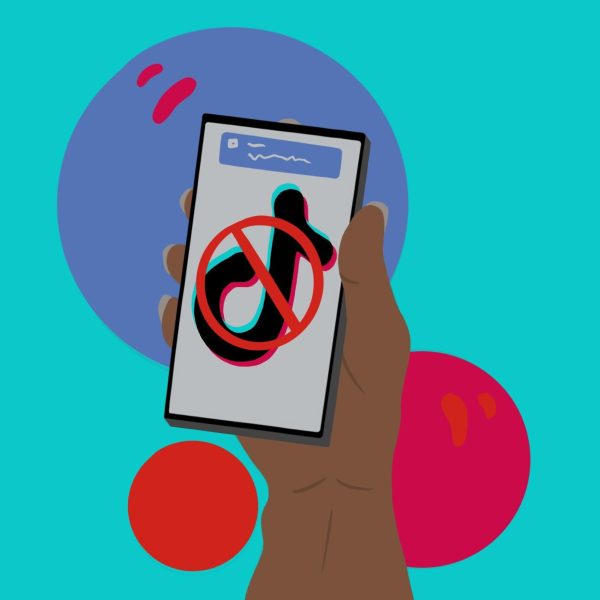Q&A with Daria Willis
EvCC President Shares Her Vision for the College
President Daria Willis, in her office located in Olympus Hall, shares her vision for the college. Willis says she wants to shift the college to implementing a shared governance model.
Although she’s only been president for four months and at the helm of her presidency, Dr Daria Willis has already set the bar high with big goals for the college.
Besides going around campus, meeting and interacting with students, faculty and staff, she has a vision of attaining a higher graduation rate for EvCC. According to her, the graduation rate for EvCC has been low for the past four years. “I’ll say I’m not satisfied with a 25% completion rate because that means that 75% of our students, where do they go, what happens to them?” said Willis. “And I’m pretty sure there are a lot of other people around here who aren’t satisfied with that as well. So how do we move forward as an institution to redefine what that goal is, make it ambitious, make it attainable and get together and make it happen.”
Willis was unanimously elected by the board of trustees in April 2019 and officially took office on July 1, 2019, to succeed Dr. David Beyer, who announced his retirement on September 17, 2018, after 13 years of service to the college.
Dr. Willis shared her plans and goals for the college.
How has it been for you since taking office?
It’s been great, but it’s been exhausting as well. But, it’s been an awesome experience moving across the country coming to Everett learning about the campus, community, students, faculty and staff. But I won’t lie to you, it’s been hard getting up some mornings and getting going, but it’s good work that I enjoy, I can’t ask for anything more.
This is your first appointment as president of a community college. How different is it from the previous positions that you’ve held?
So, it’s different, in my last position, I was Provost and Senior Vice President of Academic Affairs. I was really into curriculum, instruction and academics. As president, you are not the one that’s just in one siloed space. My job now is to look over the entire campus, and it’s been interesting learning about the building projects, facilities and student services. It’s been an interesting balancing act and how I remove myself from some of those day-to-day task-oriented things to more of a global look at how the campus moves forward into the 21st century. Now, it’s much more of a 30,000 level approach to making sure campus wide, we’re moving in the same direction.
Now that you’ve officially taken office and have had one quarter under your belt, do you feel you can start working on your goals you have set for the college?
I’m always working on goals. But my problem is I come up with some more, and when we talked for the first time, I thought these are things that I want to do. But then when you really get in, and you start talking to people, and then you open up that closet and stuff starts coming out. You look under that rug, and you see some things you need to work on, then you start adding to those, and so I have learned to say that not everything needs to be done in year one.
So my primary goal for the college this year is just really getting acclimated with the people in the community, but also advancing our mission for student success and redefining as a college, what is our goal for student success. I’ve looked at the data, I’ve seen where our numbers are, our graduation rate, why has it stayed pretty flat for the last four years? We need to be able to answer those questions, pull out our dirty laundry, talk about that and then figure out as a campus what’s that number going to be that we’re going to hit.
Why do you think the college is experiencing a low graduation rate?
There have been a lot of internal struggles at this college, and I’ll say every family’s got a problem. We all have things that we need to work on, and that is, in my opinion, what I’ve heard. So, from the first day coming here and talking to people, everybody has a story. Everybody wants to be heard, and some of those stories aren’t good. And so you have things like the LRC debate that was happening on campus. Issues like what happened with some of the counselors, the staff and just interdepartmental concerns, issues and problems.
I think a lot of that has caused a rub to take our eyes off the ultimate goal of getting our students where they need to be, not to say that anyone is at fault. Everyone has different opinions, I may feel a certain way about something, you may feel a certain way, and we can battle back and forth on it, but we’ve got to get to a place of healing on this campus.
We need to acknowledge the scars, acknowledge the pain, understand that those things happen under a previous administration, and know that I’m here to try to bring us together so that we can get back to what matters most, everybody on this campus which is the students. But we can’t do that until we acknowledge some of the pain that has taken place, then we can get out of this lag and move forward because this is the job that we’ve all been hired to do on this campus, and we need to get back to that.
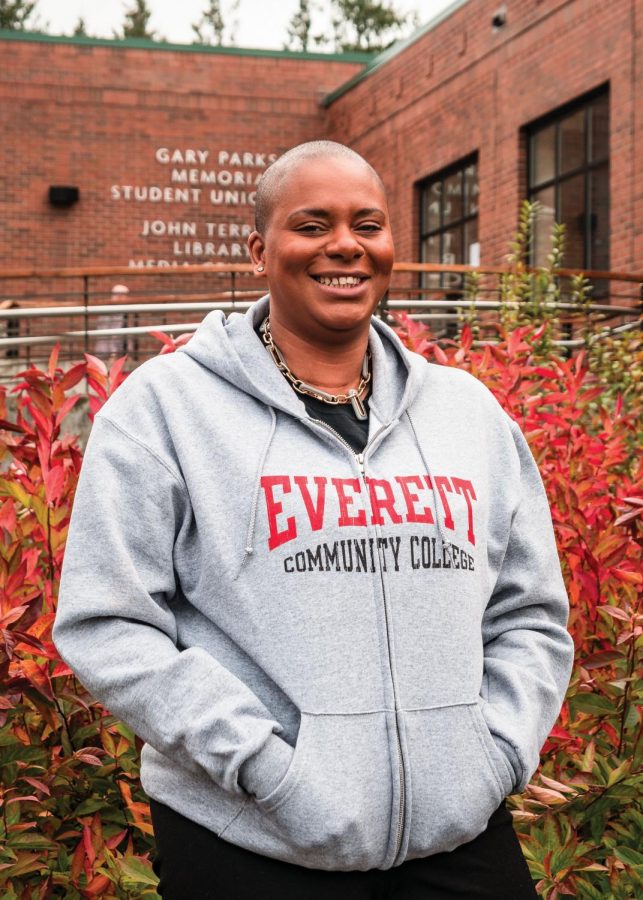
President Daria Willis, wearing a Trojan sweatshirt in support of Trojan Thursday outside of the Gary Parks Memorial Student Union building.
You mentioned during the last interview with you, that EvCC’s Diversity, Equity and Inclusion program is what attracted you to the school, do you have any desire to expand the program?
Well, I think right now, I’m still learning. I’ve been here for four months now, but I have a lot of ideas about everything. I think when it comes to equity and inclusion, we can always do more, and we can always do better. I don’t know what that means for us yet.
My focus right now is building my team and the team of vice presidents and making sure they’re one with me and my vision that we have for moving this institution forward and for building relationships with the various constituents on and off campus. So equity and inclusion, it’s always number one on my priority list, but like anywhere else you go in this country, there’s always more work to do.
Speaking of building relationships. How do you hope to achieve that?
One-on-one conversations like this, getting out of Olympus Hall and moving around a bit. Jeri Pourchot (Senior Executive Assistant, President’s office) has been fantastic at putting some travel time in my calendar. So that’s my time that I can go out to different classrooms and walk the halls and talk to people. So that’s how I’ve been able to build the best relationships.
As the new president, is there anything that you would like to change about EvCC?
I think this is a great place. The one thing I do think we need to change is how we make decisions at this college. And how do we shift from a top-down approach to more of a shared and participatory governance type of model? And that’s not to say that everybody’s going to get their way in that, but voices will be heard and will be allowed to come to the table and that you will be respected for your opinions. And if that’s the one thing I could change, it would be implementing a shared governance model at this college, and that would include students, faculty and staff being able to participate.
That’s not to say in every decision that has to be made, because as president I will have to make certain decisions and sometimes people will like them, sometimes people wouldn’t. But there are other operational types of decisions that will need to be made that will require more than just my voice at the table.
As I said before, since coming here I’ve noticed there has been a lot of discord and concerns about just how things are done and not to say I won’t make mistakes in some of those processes, but we need to get to a space where shared and participatory governance is the way we operate. And that everyone’s held accountable for the decisions that are made and that we all participate in the process.
You are quite active on social media, why is it essential for you to have a social media presence as a community college president?
I think it’s important to have a presence because you need to debunk the myth of where the president is and what we do and what that means. And it’s been exciting that the campus is excited to see me on social media, but I’m excited that people will know that I’m here and that I’m working for them. But it’s also about educating what I do every day, and my excitement to be on this campus. So for me, as a president, it helps educate people on what it takes to be a president and that not all presidents are created equal. We look different, we are different and we operate in our ways and then it gives me access to other people to get good information on what’s going on and how I can best serve them. So that’s probably been the best part of going home checking my social media.
In a tweet, you call on people to refer to college students as adults and not kids. What made you share that message?
I was at a conference, and I’m a young president. I just turned 35, and I was 34 at the time. I’m in spaces a lot of times where people are older, and I respect that, but every presenter that got up to talk about community colleges’ students kept calling them kids, and I know they didn’t mean anything by it. But to me, it’s a sign of disrespect. It’s almost like when you don’t remember someone’s name, or you don’t want to pronounce a name correctly.
We’re adults, and we have people from a variety of ages and family backgrounds and life experiences to say that I am not in diapers anymore. Maybe I don’t have what you have, but I’m trying to work to get to that goal. I thought it was just important for people to understand that community college students are not less than; they are equal to any other student that is out there that’s working hard to achieve their goals. And they’re not children, so don’t treat them like children and look at them that way.
Having my own experience as a student parent and being thrust into adulthood early for my own choices, I know how it feels for people to look at you a certain type of way and think you don’t know anything about life. No, I do, and my experiences helped me to where I am today. We need to value people for their experiences and where they are in life.
What is your favorite thing about EvCC?
My favorite thing about EvCC is the students and my access to students, that’s the best. Because when I walk down the halls, I say, hey, good morning, and some people might look at me, and they go “Hey,” other campuses they don’t do that. So that’s been great, the acceptance of me on this campus, that’s been just wonderful, and it says a lot, and it goes back to your question and when we first talked and how I was attracted to equity and inclusion.
But I feel like I’ve been accepted on this campus for who I am. I’m not always dressed up in a suit every day, and it’s okay. I think that we should meet people where they are, but accept people for who they are, and that’s just been awesome for me. So if I’m being welcomed this way, I know that we’re welcoming other people who are different and who aren’t what you see on TV the same way.
What else do you want the college to improve on that, in your opinion, has not been done?
We need a one-stop shop type concept for students. Right now, the campus is engaged in advising discussions and who’s going to do advising, what this process will look like and where the resources are. Right now, a student can go to Parks to enroll or register at the cashiers’ office, but they have to get tested in another building, and they have to get advice somewhere across campus and another location.
I’m used to everything being in one centralized spot so that students don’t have to go searching for it. But that will take some resources and some campus discussions on how to get that done. I don’t want to jump ahead of our advising team and the campus discussion that’s happening because I’m waiting for their feedback.
What do you hope to achieve in the first year of your presidency?
In the first year of my presidency, I hope to create a better consensus on campus in the direction that we’re headed. So our goal can’t be at 25% for a graduation rate for our students. I hope that it’s higher and I hope that I would have built relationships with all constituents internal to the campus to where we can start building a path forward. Our next goal after this year is starting a new strategic planning process and refreshing and reframing how this campus will move for the next five to 10 years.
As president of the EvCC, what general advice do you have for the students?
You know, I won’t say it as a president, I’ll say it as my experience as a student. Just don’t give up and don’t be afraid to ask for help. Because we all need help, even now I need help, and I have my mentors. When I get stumped on a question, I pick up the phone, and I called other people and asked, and I hear a lot of times that students are afraid or ashamed of asking for help. You shouldn’t be because we are here to support each other.
So never give up. Don’t take no for an answer and seek assistance when you need it. Don’t be afraid to do that. If not, then where would you be?
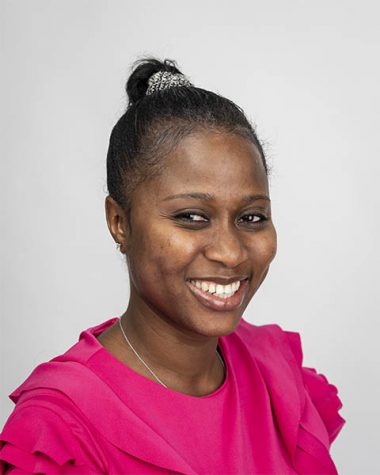
What interests you about journalism?
Generally, everything about journalism interests me. But the thing that interests me the most is, as a journalist...
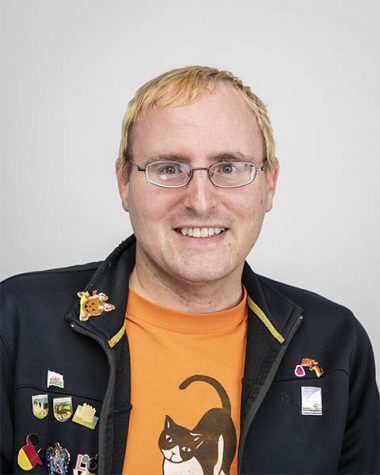
What are you doing when you aren't at The Clipper?
I can be found haunting the various live music venues in almost all major cities between Bellingham...

